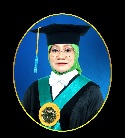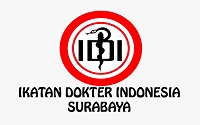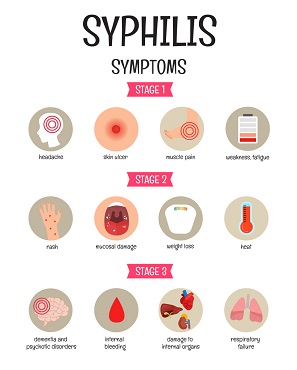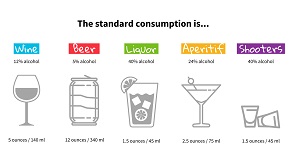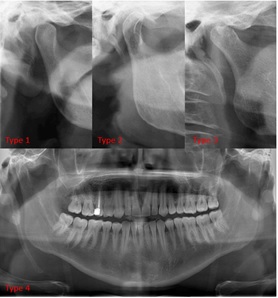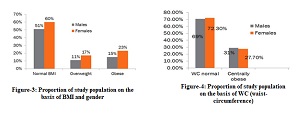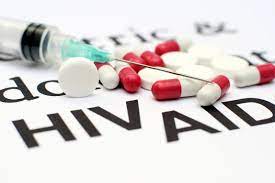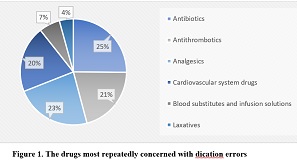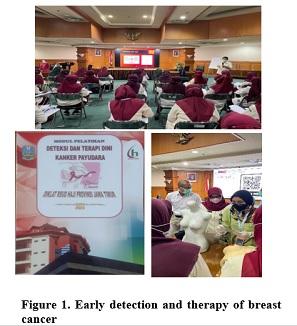Education Webinar Increaces The Knowledge of The Mask Waste Management During COVID-19 Pandemic
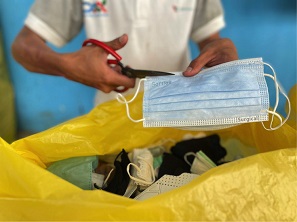
Downloads
Covid-19 caused many countries to implement new policies to combat its transmission. Among these new policies is the mandatory use of face masks in public spaces, which increased their production, consumption, and mask waste in the environment. Insufficient knowledge and awareness about the proper disposal of used masks, especially medical masks, might lead to environmental pollution due to microplastic particles and widespread contamination of Covid-19, which will affect sanitation and clean water supplies. Thus, providing education regarding proper and responsible masks use and disposal is essential to maintain good health for all and reduce potential environmental hazards amidst the Covid-19 pandemic. To understand the effect of providing education on knowledge regarding the use and management of medical masks,"EMISSION: Reducing Mask Waste in the Midst of Covid-19 Pandemic” webinar was conducted. This study used the One Group Pretest-post-test Design research method. The sample was selected by purposive sampling technique. The variable studied was the increase in knowledge as measured by pretest and post-test questionnaires. The obtained data were tested by using Paired Samples T-Test. There was a significant effect between knowledge scores related to medical masks before (pretest) and after the (post-test) webinar with a difference in the average value of 0.59 and p-value = 0.000. Education through "EMISSION: Reducing Mask Waste in the Midst of Covid-19 Pandemic" webinar increased public knowledge regarding medical masks to help ensure good health and well-being.
Aragaw T. A. (2020) ‘Surgical face masks as a potential source for microplastic pollution in the COVID-19 scenario', Marine pollution bulletin 159, 111517. doi: 10.1016/j.marpolbul.2020.111517.
Azlan A. et al. (2020) ‘Public knowledge, attitudes and practices towards COVID-19: A cross-sectional study in Malaysia', PLOS ONE Journal, 15(5): e023366, pp: 6-9. Available at: https://doi.org/10.1371/journal.pone.0233668.
Diyanah K. and Damayanti R. (2021) ‘PENINGKATAN PENGETAHUAN TENTANG PENCEGAHAN COVID-19 PADA MASYARAKAT DENGAN PROGRAM WEBINAR', Jurnal Layanan Masyarakat (Journal of Public Services), 5(1), pp:106-108. doi: 10.20473/jlm.v5i1.2021.103-1.
Direktorat Promosi Kesehatan Kementerian Kesehatan RI (2020) KMK No. HK.01.07-MENKES-382-2020 tentang Protokol Kesehatan Bagi Masyarakat di Tempat dan Fasilitas Umum Dalam Rangka Pencegahan COVID-19. Available at: <https://promkes.kemkes.go.id/kmk-no-hk0107-menkes-382-2020-tentang-protokol-kesehatan-bagi-masyarakat-di-tempat-dan-fasilitas-umum-dalam-rangka-pencegahan-covid19>.
Duong M.C. et al. (2021) ‘A Cross-Sectional Study of Knowledge, Attitude, and Practice Towards Face Mask Use Amid the COVID-19 Pandemic Amongst University Students in Vietnam', J Community Health. Available at: https://doi.org/10.1007/s10900-021-00981-6.
Ernyasih, et al. (2020) 'Membangkitkan Kedisiplinan di Era New Normal pada Masyarakat melalui Webinar Kesehatan'. Available at: https://jurnal.umj.ac.id/index.php/semnaskat/article/download/8809/5161.
Institute for Global Environmental Strategies (2020) Waste Management during the COVID-19 Pandemic From Response to Recovery. p.12. Available at: https://reliefweb.int/sites/reliefweb.int/files/resources/WMC-19.pdf
Juwono, K. and Diyanah K. (2021) ‘ANALISIS PENGELOLAAN SAMPAH RUMAH TANGGA (SAMPAH MEDIS DAN NON MEDIS) DI KOTA SURABAYA SELAMA PANDEMI COVID-19', PP. 14-16. Available at: https://doi.org/10.22435/jek.v20i1.3910
KEMENTERIAN KESEHATAN REPUBLIK INDONESIA (2020) PEDOMAN PENGELOLAAN LIMBAH MASKER DARI MASYARAKAT. Available at: https://covid19.kemkes.go.id/download/Pedoman_Kelola_Limbah_Masker_Masyarakat.pdf
Kementerian Lingkungan Hidup dan Kehutanan (2020) KLHK Perkuat Regional untuk Respon Limbah Infeksius COVID-19. Available at: <http://ppid.menlhk.go.id/siaran_pers/browse/2477>.
Kusumaningtiar, D. et al. (2021) ‘TANTANGAN LIMBAH (SAMPAH) infeksius COVID-19 Rumah TANGGA DAN Tempat-tempat UMUM' Jurnal Pengabdian Masyarakat AbdiMas, 7(2), pp. 87-88. Available at: https://doi.org/10.47007/abd.v7i2.3952
Nidaa I. (2020) ‘GAMBARAN PENGETAHUAN MASYARAKAT PEKALONGAN TENTANG COVID-19', JURNAL LITBANG KOTA PEKALONGAN, 19(1), p. 68. Available at: https://jurnal.pekalongankota.go.id/index.php/litbang/article/download/128/125
Nurmala, I. et al. (2018) Promosi Kesehatan. Surabaya: Airlangga University Press.
Prata, J. et al. (2020) COVID-19 'Pandemic Repercussions on the Use and Management of Plastics', Environmental science & technology, 54(13), pp. 7760–7765. doi: 10.1021/acs.est.0c02178.
Prihati D. R. et al. (2020) ‘Analisis Pengetahuan Dan Perilaku Masyarakat Di Kelurahan Baru Kotawaringin Barat Tentang Covid 19', MANUJU: MALAHAYATI NURSING JOURNAL, 2(4), p. 784. http://ejurnalmalahayati.ac.id/index.php/manuju/article/view/3073/pdf
Reza, M., Suci, I., & Riani, E. (2020) ‘Unprecedented plastic-made personal protective equipment (PPE) debris in river outlets into Jakarta Bay during COVID-19 pandemic', Chemosphere. doi: 10.1016/j.chemosphere.2020.129360.
Sikakulya, F. et al. (2021) ‘Use of face masks to limit the spread of the COVID-19 among western Ugandans: Knowledge, attitude and practices, PLOS ONE Journal, 16(3): e0248706, pp. 5-6. Available at: https://doi.org/10.1371/journal.pone.0248706
Sugiyono (2016) Metode Penelitian Kuantitatif, Kualitatif, dan R&D. Bandung: PT. Alfabet.
Tarigan F. A. (2021) ‘GAMBARAN TINGKAT PENGETAHUAN MAHASISWA UNAI DALAM PENGGUNAAN MASKER YANG BENAR', Jurnal Gawat Darurat, 3(1), p. 47. Available at: https://journal.stikeskendal.ac.id/index.php/JGD/article/view/1432/868
United Nation (2021) Chemicals and waste. Available at: https://sdgs.un.org/topics/chemicals-and-waste.
United Nation (2021) Ensure healthy lives and promote well-being for all at all ages. Available at: http https://sdgs.un.org/goals/goal3s://sdgs.un.org/topics/chemicals-and-waste.
World Health Organization (2021) Coronavirus Disease 2019 (COVID-19) Situation Report - 64. Available at: <https://cdn.who.int/media/docs/default-source/searo/indonesia/covid19/external-situation-report-64_21-july-2021.pdf?sfvrsn=e9aec4fa_5>.
World Health Organization (2021) Weekly epidemiological update on Covid-19 - 27 July 2021. Available at: https://www.who.int/publications/m/item/weekly-epidemiological-update-on-covid-19---27-july-2021.
World Health Organization (2020) Archived:WHO Timeline - Covid-19. Available at: https://www.who.int/news/item/27-04-2020-who-timeline---covid-19.
Copyright (c) 2022 Anggia Gracia Marlina Situmorang, Kintan Adelia Farahannisa, Kintan Adelia Farahannisa, Iqlima Rahmawati, Iqlima Rahmawati, Lynda Rossyanti, Lynda Rossyanti

This work is licensed under a Creative Commons Attribution-ShareAlike 4.0 International License.
- The journal allows the author to hold the copyright of the article without restrictions.
- The journal allows the author(s) to retain publishing rights without restrictions.
- The legal formal aspect of journal publication accessibility refers to Creative Commons Attribution Share-Alike (CC BY-SA).
- The Creative Commons Attribution Share-Alike (CC BY-SA) license allows re-distribution and re-use of a licensed work on the conditions that the creator is appropriately credited and that any derivative work is made available under "the same, similar or a compatible license”. Other than the conditions mentioned above, the editorial board is not responsible for copyright violation.


